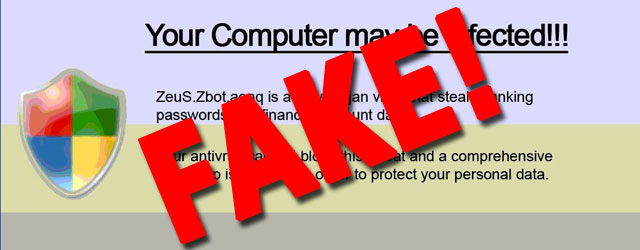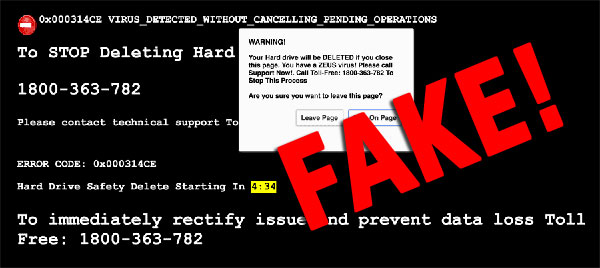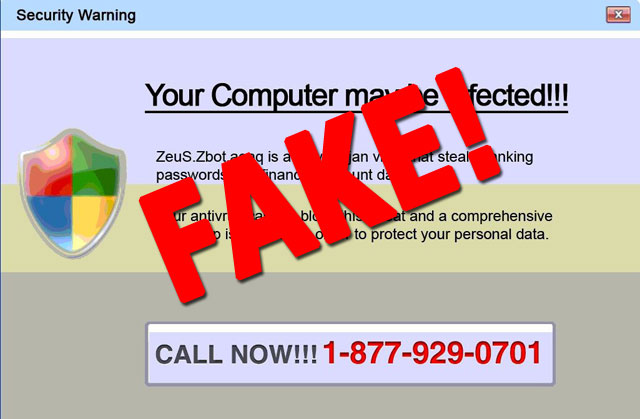Don’t Fall For Tech Support Scams!

At N-Sync, our talented technicians are seeing a rapid increase in people falling victim to new online scams called Phishing.
One common scam starts with the user being alerted, usually in a very official looking way, by a company they know, that they have been hacked. The messages appear to come from a big company that the recipient uses every day such as Google, Microsoft, Apple, Facebook, Twitter, or their bank or credit card company. The messages use graphics and logos that are familiar and look very official. BUT, don’t be fooled, these graphics are easily downloaded from the web.
Here is the catch, at this point, the scammers do NOT have access to your system, and in most cases you are perfectly fine. Their goal is to get YOU to contact THEM, and have you give them access to your computer.
They do this often by showing you a simple animation, or taking you to a static Webpage that APPEARS to be scanning your computer. After scaring you with alerts of dozens of viruses, they get you to give them access to your computer when they ACTUALLY put malware on it. Often scammers will use software to lock your computer and then require a ransom payment to unlock it.
The big tech companies DO NOT have phone support. So don’t trust when someone tells you to call them. The big companies do not reach out to you. They want you to interact with them online via support forums. It’s very easy for scammers to set up a webpage with a phone number and trick people into calling them, where they pretend to be your favorite tech. companies.
Things to Remember:
-
• Never Click on Links in an Email. Open a Browser and type the link yourself.
-
• Google, Microsoft, Apple, Facebook, Banks, Will NOT Contact YOU and they will NOT ask YOU for your login information. They already have it.
-
• You can not CALL the real companies. They are too big, they want you to interact with them online. Any number you look up for them online, will be scammers trying to rip you off.
-
• Do NOT let anyone remote into your computer.


